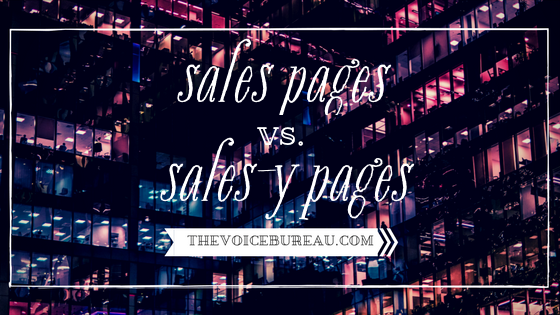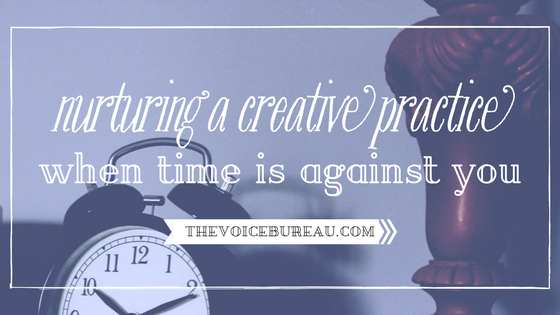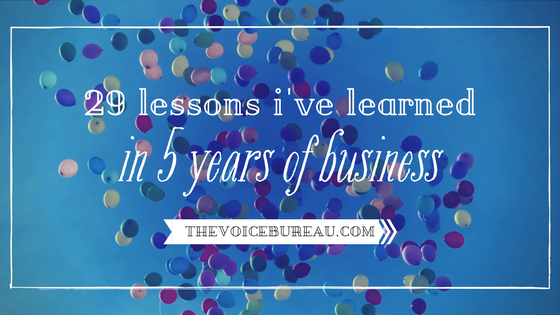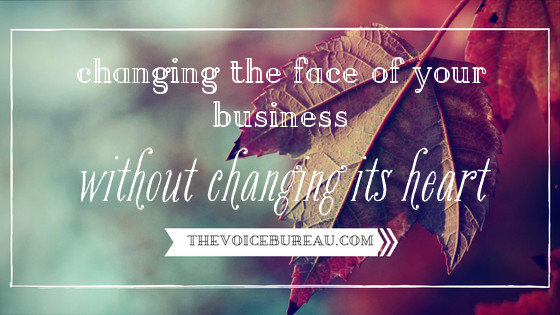 I’ve heard it at least a hundred times.
I’ve heard it at least a hundred times.
“There’s nothing I hate more than copy that sounds ‘sales-y.’”
“What language to avoid? Anything that sounds…sales-y.”
“I don’t want it to sound like I’m selling to people.”
“I can’t stand a website that’s too sales-y.”
These are business websites. You know, ones where people…sell things. So what’s the hangup about letting readers know it?
I think, in order to unpack this, we need to take a step back and look at our overall business philosophies. How many times have you apologized for or made excuses about the “business” side of your business?
“I’m sending over the invoice, but there’s no rush.”
“It’s not that I don’t trust you, but the contract makes sure we’re on the same page.”
“I’m really sorry, but because you missed our deadline by six months, I’m going to need an extra week to rearrange my schedule.”
(No judgement here. I may or may not have pulled these statements from my own emails.)
I think there’s a tendency to hide from the details. We want to serve, to share, to guide…but yes, we need to get paid, too. It’s difficult because so many of us have chosen this road because it has such heart, because it allows us to connect and serve and build relationships in ways that our corporate jobs never did. But if we want to keep doing this work we love, we need to make it sustainable.
We’re doing ourselves a disservice as business owners if we pretend we’re ashamed to be in business. I have to remind myself at least twice a week that I don’t need to apologize for doing the things that keep my bills paid and a roof over my head.
There is no shame in sending out an invoice. There is no shame in discussing terms. There is no shame in writing up a contract. There is no shame in selling a product or service.
So how do we run a business — with all the messy, distasteful, transactional details — without feeling like we’re putting a price tag on the relationships we cultivate? When the idea of hustling for the next sale doesn’t jive with our business philosophy, how do we build a profitable business? And, to bring this back around to my original point, how can you write a Sales Page that sells without feeling “sales-y”?
The key is remembering why you’re here, and why your clients are here.
You are providing a product or service that fills a need they have — whether that need is for a therapist to guide them through some trauma in their lives or for a gorgeous throw pillow that perfectly complements their new couch. What you do, they need. Your passion, your specialty, your specific knowledge is what is missing from their life. They want to hire you. So, rather than focusing on the sale, focus on the need.
A Sales Page starts sounding sales-y when you say, “Buy now — this offer won’t last!” instead of “Let’s start now — you could see a change immediately.” (Okay, maybe don’t imply you’re going to change their lives if you’re selling a throw pillow, but you get the point. And actually, a really great throw pillow can make a room, so don’t underestimate yourself either.)
Your Sales Page should have very little to do with you — aside from explaining why you are uniquely qualified to fill this need — and everything to do with how you can help your client. What is the problem you solve? What do they need that you can provide? Create urgency by showing them how much better you can make things for them — and why should they wait to have that? — rather than by arbitrarily forcing some deadline.
The other way that Sales Pages become sales-y is when you talk at rather than with your prospective client. This is a conversation, not a pitch. Your job (or ours) in writing a Sales Page is to connect their need with your product. So start from the beginning: recognize their need. Show them that you understand the problem they have. And then show them how you can help.
Okay, so they need a throw pillow. Yours has a really cool design — it’ll really pop in their room. The colors are super saturated but won’t fade or rub off on other fabric. The material is polished but soft — you can take a nap on it, but it’s not a lumpy mess. The quality of the craftsmanship mean that it’ll last them, even if their dog decides to curl up with it every once in a while. How will they feel with it on their sofa? Can you make them imagine it in their space?
Once you’ve made your case, back off. No “But wait, there’s more!” No “This offer won’t last!” Share your facts, try to connect with your reader emotionally, and then make it easy for her to say “yes.”
I think “sales-y” is really just another word for “disingenuous,” when it comes down to it. We’re in business. Selling things is what we do. But it’s when we become disconnected from that desire to serve that we lose the authenticity of our copy. It’s when we focus on making the sale rather than improving the lives of our clients that we start sounding “sales-y.”
Selling doesn’t need to be cynical. Yes, you want a Sales Page to convert. You want it to bring in, well, sales. But it doesn’t need to be about gimmicks and hard sells and forcing a certain narrative. When you’re creating an emotional connection between your product and your potential client, you aren’t doing it to deceive her, you’re doing it so that she can envision it in her life. This isn’t a calculated move to pull at her heartstrings, it’s an attempt to share the relevant information to help her make the decision that she came here to make. You can provide something to improve her life — your job isn’t to “sell her” on it, it’s to show her how you’ll make things better for her.
Convincing people to purchase what we have to offer gives them something they need, but it also keeps us in business — which means we’re here another day to fill another need for another client. Don’t be embarrassed to sound like you have something to sell, but don’t feel like you need to over-sell it, either. Your Right Person is already on your site because she thinks she might want to purchase something from you. You just need to help her see that she’s in the right place.
There’s much more to writing a great Sales Page, obviously. If you need one and want to try writing it yourself, our Writing the Conversational Sales Page course might help. It’s seriously packed with directly applicable, easy to implement info on writing an effective sales page — one that connects with your reader, that makes your case, and that doesn’t leave you feeling…well, sales-y. We’ll be re-releasing it very soon for self-paced study, as part of our upcoming Summer School special. Make sure you’re on our mailing list so you’re the first to know when it’s available.
In the comments, I’d love to hear:
Do you struggle with coming across as “sales-y” in your web copy? Or do you overcompensate so it’s hard to know you’re even selling anything?
{ 5 comments }




 Hello, you.
Hello, you.